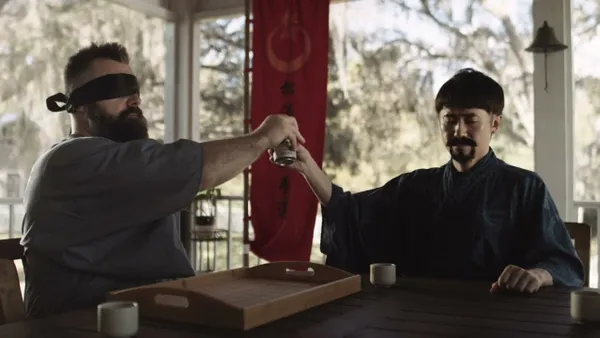Dive Brief:
- British potato chip brand Walkers Crisps had to shut down and apologize for a Twitter campaign on Thursday after a number of posts featuring serial killers and other odious figures overran the promotion, according to Adweek. The effort asked users to share selfies with the hashtag #WalkersWave, with head shots then being held up in an automatically-generated video featuring brand spokesperson and retired soccer player Gary Lineker.
- Adweek speculated the campaign was largely run through an automated software that effectively scanned shared images to make sure they featured peoples' faces but did not actually vet whose faces were posted. It wasn't long before criminals like Harold Shipman and Fred West — both serial killers — along with dictators including Joseph Stalin were tweeted out in videos by the brand.
- While Walkers Crisps moved to delete the most offensive videos individually, it eventually shut down the entire promotion and issued the following statement from its official Twitter account:
We recognise people were offended by irresponsible & offensive posts & we apologise. We are equally upset & have shut the activity down.
— Walkers Crisps (@walkers_crisps) May 25, 2017
Dive Insight:
Marketers are hot on user-generated content, as it can be relatively low-effort — why create an extensive campaign when fans can do a lot of the heavy lifting? — and also build social media chatter around a particular hashtag or trending topic. Walkers Crisps' fumble, however, joins a growing list of instances where a failure to instate a proper vetting process has opened the floodgates for some serious trolling, ultimately botching what could've been a clever promotion.
The #WalkersWaves moment mirrors the very public malfunction of Microsoft's "Tay" last year, where an AI-powered Twitter chatbot intended to learn from user interactions did so by quickly turning into a hate-spewing racist. Both instances also show how brands are still working through how to properly integrate automated or cognitive technologies into their marketing efforts with minimal human oversight and without said technologies going haywire.
Twitter is often criticized for doing little to curb harassment and hate speech, so brands should be extra careful in broaching the platform for crowdsourced initiatives and should always have a second line of defense set up regardless of platform choice.















